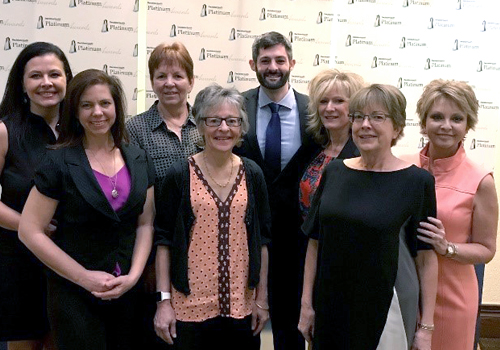
Need to remove
When a new medication to treat the hepatitis C virus (HCV) in renal patients became available two years ago, a Fresenius Kidney Care team quickly assembled to eradicate the disease among patients on dialysis. As a result of that effort, 97 percent of those patients treated have now been cured.
Hepatitis C is a liver infection caused by the hepatitis C virus. For most people who become infected with HCV, it becomes a long-term, chronic infection that can have a serious impact on liver function over time. Hemodialysis patients are at increased risk for contracting the virus.
“When I first that I found out I had hep C I felt everything caved in on me,” said Dave Cota, 57, a Fresenius Kidney Care dialysis patient from Ogden, Utah who was recently cured. “I am so grateful that the clinic stepped up and talked to me about this new drug. They really did a lot for me.”
Fresenius Kidney Care established a hepatitis C eradication program shortly after a new medication called Zepatier was approved in 2016 for use in patients with end stage renal disease (ESRD).
Led by Fresenius Kidney Care’s chief medical officer Dr. Jeffrey Hymes, the company partnered with the Scripps Clinic Liver Research Consortium to develop a treatment program to eradicate and prevent the transmission of HCV among renal patients. The eradication program includes a team of nurse advocates who collaborate with clinic staff, nephrologists, labs and pharmacies to identify and treat eligible dialysis patients.
“Despite the recognition that hepatitis C represented a significant health care risk for our patients, no effective treatment was available for them,” said Dr. Hymes. “The introduction of Zepatier created the opportunity to safely cure this condition for the first time.”
“Nothing compares to hearing from a grateful dialysis patient who has been cured of hepatitis C,” said Teresa Bottoms, director of case management and a member of the nurse advocate team. “The messages are so heartfelt and emotional, and they make us realize the restored hope that curing a chronic illness like hepatitis C can give.”
Dave Cota is one of those grateful patients. He was a longtime construction worker who began struggling with his health as he lost kidney function from his diabetes and high blood pressure. His nephrologist tested him for HCV when he started dialysis two years ago and discovered he carried the virus.
Several months later the clinic manager at his dialysis center approached him about the new drug. He readily agreed. After taking one pill a day for 90 days, his hepatitis C was gone.
“The relief I felt about getting rid of this hep C that I had been carrying was just great,” said Cota. “I feel wonderful, and I feel great knowing that I am not carrying it anymore.”
Last month, the Fresenius Kidney Care hepatitis C eradication program received the DecisionHealth 2018 platinum award for outstanding achievement in care coordination.
So far, nurse advocates have evaluated more than 138,000 patients. Of those who received treatment, more than 500 to date, greater than 97 percent were cured. And some patients have even shown other health improvements as a result of being free from hepatitis C.
The potential to help cure even more patients with kidney failure received a boost earlier this year when the FDA approved another drug called Mavyret. This new drug has shown promise in treating a wider range of patients with chronic hepatitis C in a shorter period of time.
“The development of new drugs provides us an opportunity to further expand our eradication program,” said Dr. Hymes. “We are pleased at the cooperation at all levels of the company to deliver this cure.”
In addition to the recent industry award, other organizations have also taken notice of the program’s success.
“We were invited to speak before the Centers for Disease Control and World Health Organization last year and were applauded for setting an example for dialysis providers by proactively managing hepatitis C among the ESRD population,” Bottoms said.
Cota says he is now more positive about his future and has developed a strong relationship with the care team at his dialysis center. He hopes that by sharing his own story, he can inspire others to first get tested and then cured.
“It is very important, especially for people on dialysis, to get checked,” said Cota. “So many people are unaware that they even have it and that there is also a cure.”


